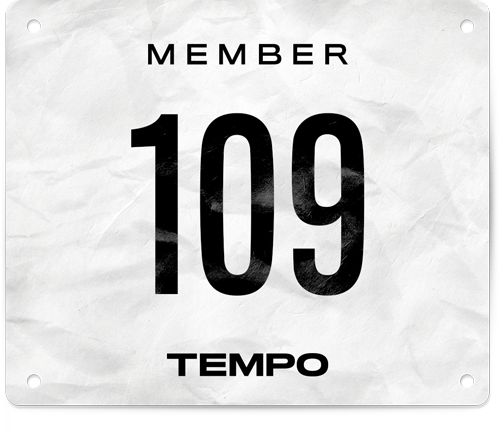Culture
To Grandma’s House Harry Gould Goes
(Before Grandma’s Marathon)
Harry Gould, a young Brooklyn-based runner, pauses at his grandma's house in rural Massachusetts before racing Grandma’s Marathon. Slowing down his pace, filling up on pre-race carbs and seeking emotional support, he hopes the dog days of taper can boost him to a personal record.
When I walked into Harry Gould’s grandma’s split-level home in early June, its welcoming owner mentioned that the property was originally a peach and pear orchard. But I turned my attention to what I could see and peeked at her seemingly infinite number of kitschy knick-knacks. Matryoshka dolls along the window pane. “Grandma’s House Rules” on the wall and “Grandma’s Book of Songs” on the music desk of her piano. A nearly illegible handwritten note beside her recliner that said what time the Red Sox were playing the Yankees that evening. Everywhere I looked there were more trinkets – the kind of collection that could only be accumulated after 53 years of living there.
“I hope he makes it through the marathon,” Sandy Gould said, pointing out baby photos of Harry. “I know he will because he's a fast runner.”
“I don’t know if you can win against a lifetime with grief, though, just like you can’t win against the pain that comes with a marathon. You live in it. You stay in it for a long time and some miles don’t hurt as bad as others.”
Sheridan Wilbur
Harry’s defining trait is his sense of friendliness. I would wonder where his jovial nature to bring people together came from if I wasn’t watching him play Kubb, the Swedish lawn game where players throw wooden batons at a set of blocks, with his relatives on the lawn until they convinced me to join in too. And I saw Harry’s disposition was not just authentic but biological. All of his family members radiated goodwill and a sense of purity around their competitive spirit.
A young runner from Brooklyn, Harry was at his grandma’s in the picturesque town of Amherst in Massachusetts as part of his preparation for Grandma’s Marathon. A marathon which would be run – as it has been every year since 1977, except for 2020 when it was cancelled due to the pandemic – on a June weekend in Duluth, Minnesota. Named after a group of local restaurants, Grandma’s (as it’s affectionately known to runners) is an iconic American race. It has less clout than a World Major but it offers a famously fast and flat course along the banks of Lake Superior.
“She taught me to go out there and give it your best. She doesn’t really care about times,” Harry said that day. Explaining his running connection to his grandma, he went on, “She raised my uncle who’s a serious runner (he ran across the United States to raise money for cancer) so she’s been around this behavior before. She accepts it and supports us however she can. She’s probably the most encouraging, nourishing and thoughtful person in my running life. If nothing else, she makes sure we are well rested and well-fed. It’s like a pressure release.”
There is something primal about the need for rest. It’s a dance of when to push and when to pull back – and when to run towards the next thing in hopes of it being better than the previous one. For Harry, who had dedicated the past six months training for Grandma’s Marathon, it had been all push in Brooklyn. But about a week before the race Harry dialed back the mileage and intensity to prepare himself for 26 miles.
I had joined him for an easy run in Amherst earlier that morning. We covered one-fifth of the marathon in what looked like the Subaru capital of the world. “I think the marathon is a blue-collar race. Anyone can be good at it if you put in the work. I have self-centred time goals (like breaking 2:30) I would like to hit,” Harry said. “But that’s not the be-all and end-all. It's such a heady sport you can forget we do this by choice. It’s supposed to be fun. Don't get me wrong. I totally take this seriously but I try to remember there's more to life than running.”
We hear it from banal self-help authors or bumper stickers: “It’s about the journey not the destination” and “The day you plant the seed is not the day you eat the fruit”. But as the destination draws near and these shorter, easier runs replace fatigue with anxiety, it can feel awful to remain present. The marathon itself isn’t always the insufferable part. It can often be the build-up.
But Harry’s voice was steady. He wasn’t outwardly fighting taper anxiety and seemed able to access a calm state as he covered the same dirt roads where running was first introduced in his life. “Being able to retrace my footsteps from when I was 10 years old and doing the same runs with over a decade of experience feels so grounding … I know how far I've come but I still have that same love for it. It’s not always fun in the moment but in retrospect, I appreciate the good times and people I get to do it with.”
Harry intentionally made the trip to Amherst to connect with family and allow his body to recover after months of 80-mile weeks pounding pavement. His aim wasn’t to escape to the countryside like a suffocated city slicker. Rather, he was returning to his roots. A member of Brooklyn Track Club, Harry admits he's also part of one of those memed wholesome families where everyone runs a 5K on Thanksgiving. “I made a promise to myself that I’d quit when I stopped having fun and I’m still having fun.”
We got back to my car and our route uploaded to Strava as a perfect circle. I found that symbolic – he’s on a cyclical, often monotonous, journey. Not a linear one. And everyone knows there’s no such thing as a straight line to improvement. It seemed like he had accepted the Sisyphusphean labour and I began to understand what gives him his meaning or enjoyment: the people he does it beside.
When I chatted with Harry’s grandma in her kitchen she was automatically hospitable. She was so over-the-top nurturing that the only explanation was it was sincere. As she reheated chocolate chip cookies and made Shirley Temples, she appeared nervous but seasoned. “You know, the last time I was filmed for an interview was by Anthony Bourdain,” she said in a cavalier manner, mentioning that the late world-renowned chef happened to drop by the tiny town where she grew up in Massachusetts.
Harry’s grandma exhibited true matriarch behavior: mysterious, polite and highly esteemed. So I relaxed into her light pink accent chair and drank my sugary orange drink as she hinted there is more to her than her role as a grandma, and that she is definitely the leader of the family.
“Yes, I hosted a literal ball. Right in this living room. When my husband and I got married, I wanted to have a fun household. We moved all the furniture out of here and everyone got dressed up in gowns and fancy clothes. We played music and danced. Oh, we had a wonderful time. It's a wonder the house stood up …”
Brought up during the tough time of World War II, Sandy admits she didn’t have a close or fun family growing up, and her mother wasn’t in the picture: “And my dad, he dropped of a heart attack when I was twelve. I’ll probably never get over it.”
Her eyes glistened as she said family means more to her than anyone could know, and I was shocked by the intensity of the moment. Her grief was so palpable that, reflecting on it, I don’t know if time heals all wounds. “It impacted my life by thinking you have to be really resilient and you have to make the best of circumstances to move forward.”
There’s no joy without sadness and it’s rare and inspiring to see these contrasts merge. It’s like that Leonard Cohen song about how cracks are how the light gets in. Perhaps grief is not about getting past it but staying with it long enough for it to transform into something else. I often hear war metaphors when people try to assuage someone’s loss or pain with words like overcoming, battling, or fighting. I don’t know if you can win against a lifetime with grief, though, just like you can’t win against the pain that comes with a marathon. You live in it. You stay in it for a long time and some miles don’t hurt as bad as others, but you learn to be more gentle when it arrives. Because the pain won’t last forever. It’s actually the opposite of war. It’s surrender.
“When I lost my husband six years ago, it was another huge loss. But I was determined. I’m keeping this house and I'm not going anywhere.”
Sometimes you take 10 hard steps in the middle of a marathon because that’s how you remain where you are. Or maybe you mow the lawn or plant flowers like Sandy does at the remarkable age of 85. Eventually new habits compound and you find the strength to stay.
“I gotta be courageous about the whole thing. If anything happens, I’ll ask Harry.”
Both Harry and Sandy know this moment of downtime was special. Harry’s grandma won’t be here forever and neither will he. But even when loved ones are gone, their love isn’t. It remains with you and reminds you to keep moving forward. Grief, pain, those cracks that make you alive – they don’t totally heal but they can give you the strength to keep moving forward.
As dinner time approached, I watched Harry help her put a heavy ceramic loaf of meatloaf in the oven. He filled up on comfort food, but I’m guessing he also fed himself more faith, more optimism, more of his grandma’s wisdom to carry with him.
“I came to Amherst to reset and to remember why I love this. I’m already proud of myself. I mean, I've gotten up to run pretty much every day for the last few months.”
He seemed content even before the starting line, which is a rare form for marathoners; but maybe he emptied some ambition or anticipation before Duluth, too. (Harry would go on to run a time of 2:50:47.)
The date of his visit was June 10, a week before the race. Sandy’s face lit up as she remembered it was also her late husband’s birthday and added that he too was named Harry. At first, I didn’t know which Harry she was referring to asking for help, but she was fully aware her grandson was here for now and sharing her company.
“I hope a lot of grandmas are at the marathon even if they’re not physically there,” Sandy said.


